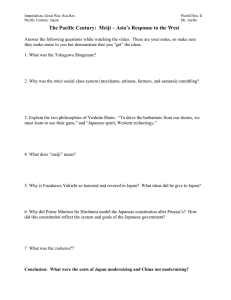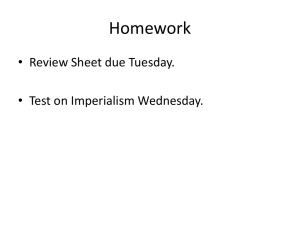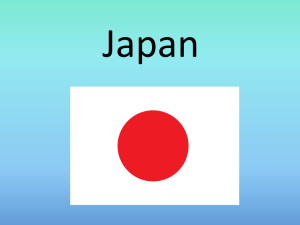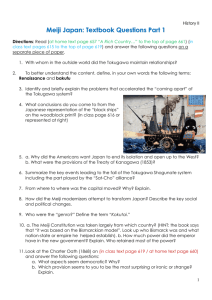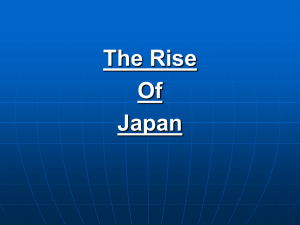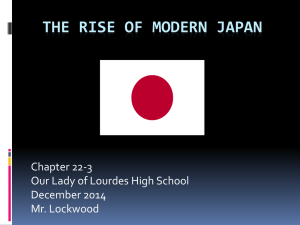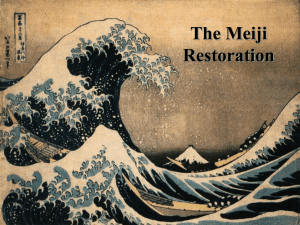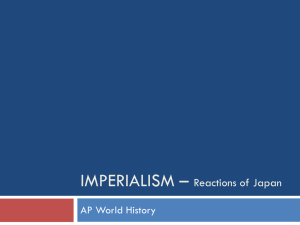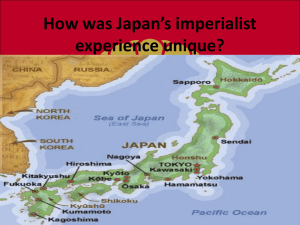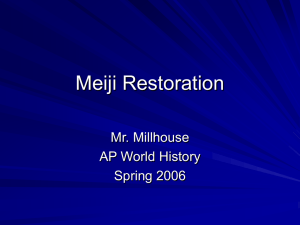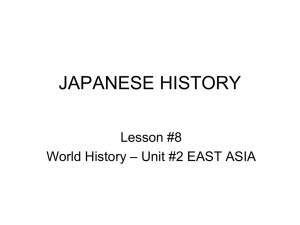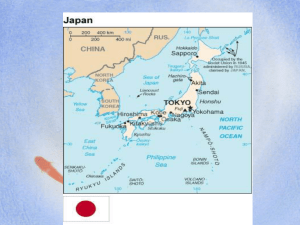Japan: The Meiji Restoration and Imperialism
advertisement
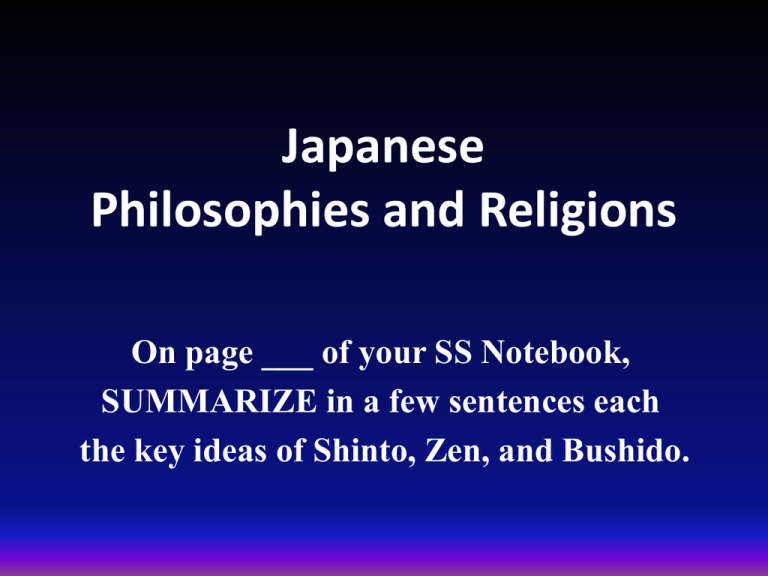
Japanese Philosophies and Religions On page ___ of your SS Notebook, SUMMARIZE in a few sentences each the key ideas of Shinto, Zen, and Bushido. Shintoism Zen Buddhism Bushido Japan: The Meiji Restoration and Imperialism Copy down all notes that are NOT in italics on page ___ of your SS Notebook. (You do not need to copy titles.) The Tokugawa Shogunate • Tokugawa Ieyasu became the Shogun in 1603 and his descendants ruled until 1868. • ISOLATION: By the mid-1600s no foreigners were allowed in Japan except one small Dutch community and occasional Chinese and Korean merchants. • The Dutch were only allowed to have ships come once per year! • The Tokugawa Shogunate is known for great art and literature. Opening of Japan • In 1853 U.S. Navy Commodore Matthew Perry arrived with gunships in Japan. • Japanese officials did not want to open trade with the West, but realized that the U.S. military was more powerful than their own. • (read letters to/from Emperor?) • Japan agreed to open several ports to the U.S. (and then other European nations). End of the Tokugawa Shogunate • Rebel daimyo (lords) attacked western ships in 1863 and lost. • When they failed to win, they were convinced they needed to change Japan. • The rebels then overthrew the Shogun in 1868 and restored the Emperor as the true leader of Japan. The Meiji Restoration • The Emperor Meiji led a new era of reform and modernization, called “The Meiji Restoration.” • Goal was western-style government • (read Charter Oath of Emperor Meiji!!) • Emperor selected upper house representatives, lower house elected. • Government funded industrialization and education. • Women were able to get an education and many moved into factory work. • Japan brought in many westerners as teachers. Japanese Imperialism • Japan didn’t only westernize its government style and its economy. • Japan also became an imperialist nation. • 1876 – forced Korea to open ports to Japanese. • 1894 – Sino-Japanese War : Japan wins control of some Chinese territory and China gives up all claims on Korea. • (read declarations of war?) Japanese Imperialism • 1904 – Russo-Japanese War: Japan takes territory in China and islands from Russia. Japanese Imperialism • 1908 – Japan takes complete control of Korea (until end of WW II in 1945) – Koreans were forced to learn Japanese – Koreans were used as slave labor Overall, a very brutal occupation
